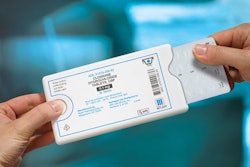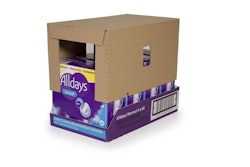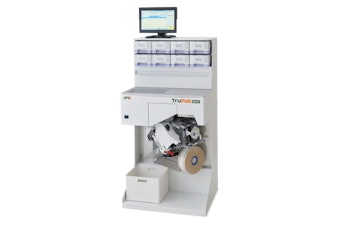
Picking up where the Federal Trade Commission left off in its attempt to devise parameters for sustainability claims, Greener Package has released the industry's first comprehensive guidelines to packaging sustainability claims.
Developed by Environmental Packaging Intl. (EPI), with input from Packaging Knowledge Group LLC (PKG, ), the Greener Package Guidelines to Sustainability Claims will be used as a basis for the review of claims made by suppliers submitting their product data to the Greener Product Database. The guidelines are available for immediate download at greenerpackage.com/guidelines.
Says EPI CEO Victor Bell, whose consultancy, along with PKG, will be reviewing product data at the suppliers' request at a nominal cost: “Consumer demand for sustainably produced products is a key driver in promoting progress at the manufacturing level. Third-party validation is critical in combating greenwashing, which—if left unchecked—could erode consumer confidence and ultimately the public's interest in buying sustainable products and packaging.”
Larry Dull, PKG partner, concurs, “The cost for a company to verify their sustainability claims is relatively small, compared to the investment that same company makes to develop, produce, and package more sustainable products. We see verification as a necessary, final step in the process and a point of differentiation for any company selling in a competitive marketplace.”
The Greener Product Database offers consumer packaged goods companies a way to research and compare sustainable packaging materials, containers, and suppliers. Products approved through review will be marked as such within the database and will be given favorable placement. The data will also feed Walmart's PackagingScorecard Modeling Software.
Sam's Club director of packaging Amy Zettlemoyer-Lazar says, “There has been a lot of confusion in this space in the last couple of years, and it has the potential to lead to greenwashing. Greenwashing is a concern because we really want to make sure that we are communicating accurate information to our customers and members, and we want to be sure that they have better information to make better purchasing decisions.”
Developed by Environmental Packaging Intl. (EPI), with input from Packaging Knowledge Group LLC (PKG, ), the Greener Package Guidelines to Sustainability Claims will be used as a basis for the review of claims made by suppliers submitting their product data to the Greener Product Database. The guidelines are available for immediate download at greenerpackage.com/guidelines.
Says EPI CEO Victor Bell, whose consultancy, along with PKG, will be reviewing product data at the suppliers' request at a nominal cost: “Consumer demand for sustainably produced products is a key driver in promoting progress at the manufacturing level. Third-party validation is critical in combating greenwashing, which—if left unchecked—could erode consumer confidence and ultimately the public's interest in buying sustainable products and packaging.”
Larry Dull, PKG partner, concurs, “The cost for a company to verify their sustainability claims is relatively small, compared to the investment that same company makes to develop, produce, and package more sustainable products. We see verification as a necessary, final step in the process and a point of differentiation for any company selling in a competitive marketplace.”
The Greener Product Database offers consumer packaged goods companies a way to research and compare sustainable packaging materials, containers, and suppliers. Products approved through review will be marked as such within the database and will be given favorable placement. The data will also feed Walmart's PackagingScorecard Modeling Software.
Sam's Club director of packaging Amy Zettlemoyer-Lazar says, “There has been a lot of confusion in this space in the last couple of years, and it has the potential to lead to greenwashing. Greenwashing is a concern because we really want to make sure that we are communicating accurate information to our customers and members, and we want to be sure that they have better information to make better purchasing decisions.”






















